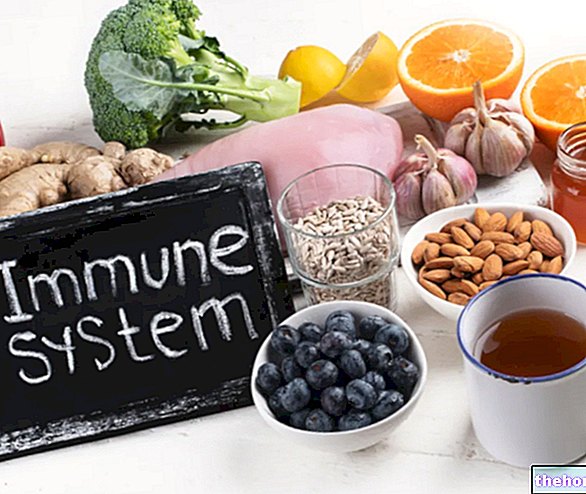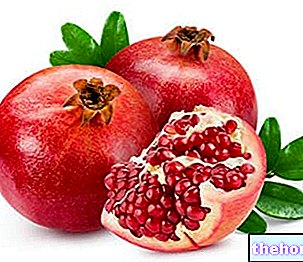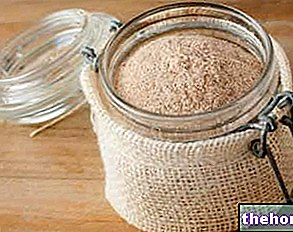Down syndrome
Down syndrome, also called trisomy 21, is one of the most widespread genetic diseases in the world; it affects chromosome 21, of which it provides a third pair. It has an "incidence of" 8% on hereditary alterations and, according to the statistics, at least 1 affected Down subject is born out of every 1,000 healthy people.

Down syndrome is associated with other disorders, malformations and physical manifestations, each of which is deeply linked to the type of mutation due to gene expression.
Sometimes, Down syndrome can create a generalized eating disorder due to its behavioral and physical repercussions.
Dietary Complications
From a dietary and nutritional point of view, Down syndrome is often accompanied by certain pathologies. Among these, some occur at an early age and others in the advanced period; of the former we recognize:
- Obesity
- Gastroesophageal reflux and vomiting
- Leptino resistance
- Celiac disease
- Impairments of the lipid profile
- Constipation
- Type 1 diabetes mellitus.
Of those most likely in later life we mention:
- Osteoporosis
- Autoimmune diseases (psoriasis, pancreatitis, inflammatory bowel diseases, etc.)
- Cardiological disadvantages
- Alzheimer's disease.
It is therefore possible to deduce that the diet for Down syndrome is aimed at the prevention or moderation of these comorbidities. On the other hand, it would be unthinkable to include all the nutritional needs of these clinical pictures in a single diet. Ultimately, the diet for Down syndrome varies according to the type of decompensation or preponderant malformation.
Down Syndrome and Oxidative Stress
Down syndrome is related to a lack of regulation / compensation of reactive oxygen species (ROS).
These, which are classified as free radicals, exert a harmful oxidant action in many cellular functions, from the genetic expression of proteins to neurodegeneration.
Down syndrome includes a defect in the mitochondrial functioning of various types of cells, responsible for: hypotonia, immune alterations, type 1 diabetes mellitus, Alzheimer's, degeneration and therefore premature aging.
To try to compensate for this inconvenience, it is possible to increase the intake of mitochondrial nutrients, ie those molecules that tend to protect the aforementioned organelles from oxidative damage (ROS) by improving their functioning. Among these, the most important are: acetyl-L-carnitine , alpha-lipoic acid (ALA), ascorbic acid, tocopherols, coenzyme Q10 (ubiquinone, CoQ10) and estradiol or similar.
In addition to taking food supplements or drugs, it is possible to increase the dietary intake of antioxidants by preferring certain foods; specifically:
- For acetyl-L-carnitine and alpha-lipoic acid: meat and offal
- Ascorbic acid or vitamin C: chili and peppers, citrus fruits, parsley, apples, lettuce etc.
- Tocopherols or vitamin E: oil seeds (e.g. almonds or sunflower seeds), derived oils, basil and other spices
- Coenzyme Q10: in vegetables and especially in broccoli, spinach, peanuts, soy and whole grains
- Phytoestrogens: similar to estradiol, they are mainly contained in soy.
Motor Problems in the Power Supply
Other eating problems that affect Down's syndrome affect the motor sphere.
In fact, it is not uncommon for these subjects to present facial dysmorphia, alterations in muscle coordination, difficulty in modulating the intensity of movements that compromise chewing, reduction of tongue movements, etc.
In practice, there are considerable difficulties in drinking, chewing and swallowing. Not surprisingly, some statistical research shows a clear tendency to limit both water, liquid food and drinks.
Food Preferences
Experimental data suggests that people with Down syndrome have a strong tendency to consume bread, pasta, preserved meats (cured meats) and sweets. On the contrary, they tend to neglect the consumption of fruits and vegetables.
This implies an energetic surplus, with an excess of the fraction of simple sugars, sometimes of total proteins and saturated fats; on the other hand, there is a lack of minerals (especially calcium), fiber, vitamins and antioxidants.
Conclusions
The nutritional needs of people with Down syndrome are comparable to that of ordinary people; however, the importance of antioxidant factors, very important for mitochondrial health and the prevention of degenerative diseases, should not be overlooked.
In a "balanced diet, all nutrients are present in satisfactory quantities, but it is essential to carefully take care of the overall dietary distribution to ensure the concentration of minerals and fiber, as well as ensure the optimal ratio of fatty acids (saturated and unsaturated) and carbohydrates (simple and complex).
In the event that Down syndrome is associated with pathologies of nutritional or metabolic interest (such as obesity, type 1 diabetes mellitus, celiac disease, reflux, constipation, etc.), it is necessary that the diet is extremely specific, see :
- Diet for obesity
- Diet for type 1 diabetes mellitus
- Diet for celiac disease
- Diet for gastroesophageal reflux
- Diet for constipation
Other articles on "Diet and Down Syndrome"
- Down Syndrome - Causes and Risk of Having an Affected Child
- Down syndrome
- Down Syndrome: Screening and Testing in Pregnancy
- Medicines to Treat Down Syndrome
















.jpg)











